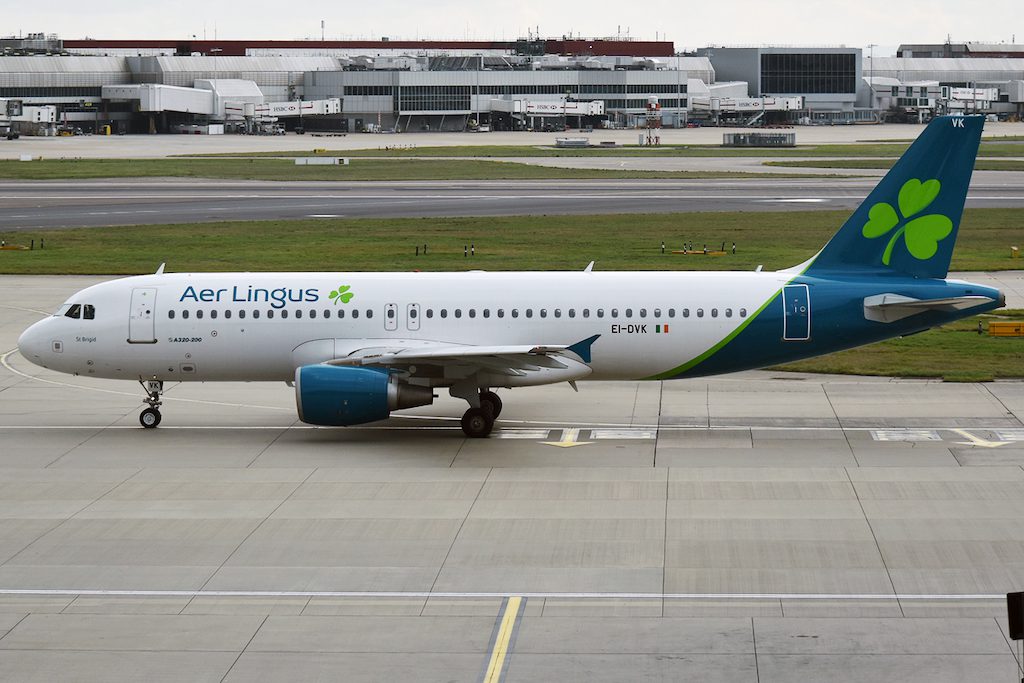Skift Take
IAG, one of Europe's largest airline groups, has an eye on the leisure travel recovery beginning in July if European governments cooperate. But with many restrictions still in place, the group is weighing taking further steps to restructure its operations, notably at Irish subsidiary Aer Lingus.
Corporate restructurings seem to be in the air in Europe with International Airlines Group placing Aer Lingus on notice amid what executives call Europe’s most “stringent” travel restrictions in Ireland.
IAG is “considering the necessary steps we need to take” for Aer Lingus to “survive,” said group CEO Luis Gallego during the first quarter earnings call on Friday. His implication was that further cost cuts — for example layoffs or fleet reductions — could be necessary at the Irish carrier if travel restrictions remain in place.
In the first quarter, Aer Lingus flew just 3 percent of the passenger traffic it carried during the same period in 2019. Passenger revenues plummeted a dramatic 97 percent to nearly $15 million (€12 million).
The revenue drop was the worst among IAG’s four airlines, which also include British Airways, Iberia and Vueling. Gallego and other executives placed the blame squarely on Ireland’s stiff travel restrictions that, unlike in other European countries, have not been accompanied by coronavirus aid for airlines.
“We are encouraging the Irish government not to be cautious [in reopening] if they’re not going to give us any support,” said Aer Lingus CEO Lynne Embleton during the call.
Aer Lingus is far from the only European network carrier on notice. On Thursday, the Lufthansa Group unveiled significant staffing and fleet cuts at its Swiss International Air Lines subsidiary in response to its view that a roughly 20 percent structural reduction in business travel has occurred. And the group says it needs to reduce its workforce in Germany — home to its namesake airline Lufthansa — by roughly another 10,000 full-time staff equivalents. Perennial loss maker Alitalia is also restructuring through a state-led process.
Both Aer Lingus and Swiss are based in countries that have not moved to support their largest airlines during the crisis. Carriers from countries that have provided relief, while not necessarily doing well, have largely avoided major restructurings. Denmark, France, Germany, the Netherlands, Spain and Sweden have all provided state relief to airlines.
All Eyes on July
“We are anticipating a decent summer season from July onwards,” said IAG Chief Financial Officer Steve Gunning during the call. The group’s carriers could ramp passenger capacity to as much as 70-75 percent of 2019 levels in the third quarter, and 80-85 percent in the fourth quarter if demand warrants.
However, prior to July, IAG is taking a cautious approach to the travel environment. Gallego described bookings as “quite volatile,” especially outside of Spain where domestic travel has reopened to a degree. IAG only plans to fly roughly 25 percent of 2019 capacity in the second quarter.
The ball is in governments’ court. Country-level restrictions still bar most travel across Europe with Croatia, Greece and Iceland among the only countries that have done more than give lip service to reopening. Both the EU and UK are planning some form of reopening this summer, whether using so-called traffic lights to indicate where it is safe to travel or digital health passes, though neither has fully fleshed out their plans.
“We would expect bookings to recover if governments are serious about reopening,” said Gallego. “People want to fly.”
IAG’s Spanish budget arm Vueling remains a bright spot in the group’s passenger operations. The airline will fly “almost 100 percent” of its 2019 capacity this summer. This is fueled by strong demand to Mediterranean beaches, as well as growth opportunities into Nordic markets opened by cuts at Norwegian Air.
The recovery in business travel is a question mark for IAG as it is for every other network carrier. The group expects a roughly 15 percent reduction in corporate sales from pre-crisis levels coming out of the pandemic, said Gunning. To mitigate this, IAG has cut its workforce and shrunk its fleet among other cost saving measures.
One big lever British Airways has already taken was the retirement of its Boeing 747s in 2020. Removing the jets pulled a large number of premium seats that were popular with corporate flyers from its inventory. The current fleet and flexible seating layouts — for example swapping some business class suites for premium economy seats — position BA well for a recovery with fewer roadwarriors, said Gunning.
On the competitive front, little has changed on the proposed acquisition of Air Europa that, when combined with Iberia, would better position IAG’s Madrid hub to compete with the likes of Frankfurt and Paris. Talks continue with both EU and Spanish authorities, said Gallego.
And The Numbers
IAG posted a net loss of nearly $1.3 billion in the first quarter, including special items. Compared to 2020, revenues fell nearly 79 percent to $1.2 billion on a 68 percent drop in expenses to $2.5 billion. Cargo was the group’s sole bright spot with revenues up 42 percent to $426 million.
Critically, liquidity needed to weather continued losses stood at $12.8 billion at the end of March.
Passenger traffic across IAG’s airlines was down 89 percent compared to 2019. Capacity was down 80 percent.
The Daily Newsletter
Our daily coverage of the global travel industry. Written by editors and analysts from across Skift’s brands.
Have a confidential tip for Skift? Get in touch
Tags: aer lingus, british airways, iag, iberia, International Airlines Group, vueling
Photo credit: IAG is weighing "necessary steps" for Aer Lingus survival amid strict Irish travel restrictions. Anna Zvereva / Flickr
